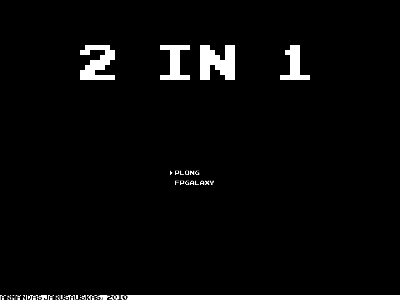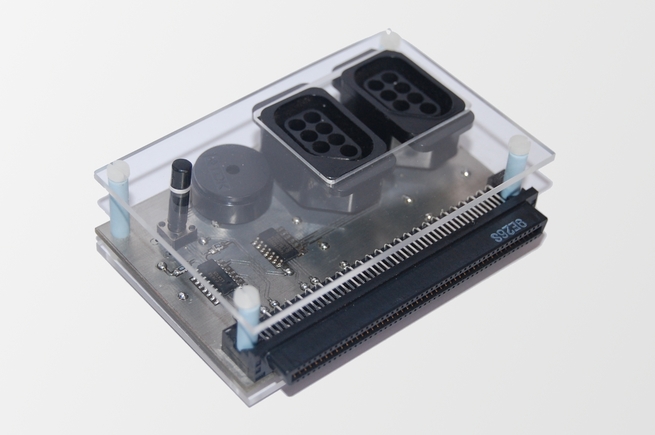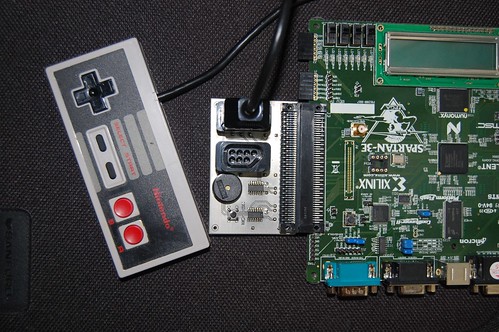FPGA Based VGA Driver and Arcade Game¶
| date: | March 7, 2010 |
|---|
During the third year at the university, students were doing their individual projects. Learning about FPGAs was on my TODO list, so I decided to propose my own project.
After some consultation with PhD students and a lecturer a topic was chosen: VGA driver and an arcade game.

Pong¶
The project was started with an implementation of the classic Pong game. The development of this game was pretty much a learning exercise and was deliberately kept simple.
Main features:
- Two player game
- Ball acceleration
- Score display and winner announcement
- Audio feedback
Space shooter¶
For the second part of the project, a space-shooter game was chosen. This time, the majority of effort was put to technical the side of the game. The following features were added:
- Coloured and animated graphics
- Multi-tone sound generator
- NES controller interface
- Binary-to-BCD converter
- etc.

The gameplay is quite simple. User controls the spaceship at the bottom. Aliens arrive in three rows, weakest at the front. Third level aliens can turn invisible and avoid missiles.
Nintendo controller interface¶
I wanted to have some custom built hardware that I could interface to with the FPGA. At first, I thought I will build a controller, but in the end I decided that an old NES gamepad would look much better.
Since the FPGA can handle 3.3V at most, and the gamepads need 5V, a logic level shifter was needed. For this purpose I decided to design a PCB.
The conversion from 3.3V to 5V and from 5V to 3.3V is done by 74HCT4066 and 74LCX125 respectively. NES sockets are hard to come by, so we had to buy a 2-to-4 expander and scavenge the ports from it. A reset button and piezoelectric buzzer were also added to the board, which is connected to the development board using a Hirose FX2 expansion header.
More details, including schematic and board layout can be found in the dissertation.

Final adaptor board
Links¶
Dissertation: http://static/res/fpga_based_vga_driver_and_arcade_game.pdf
- Source
- Whole project: http://github.com/armandas/Arcade
- Pong: http://github.com/armandas/Plong
- Space shooter: http://github.com/armandas/FPGalaxy
